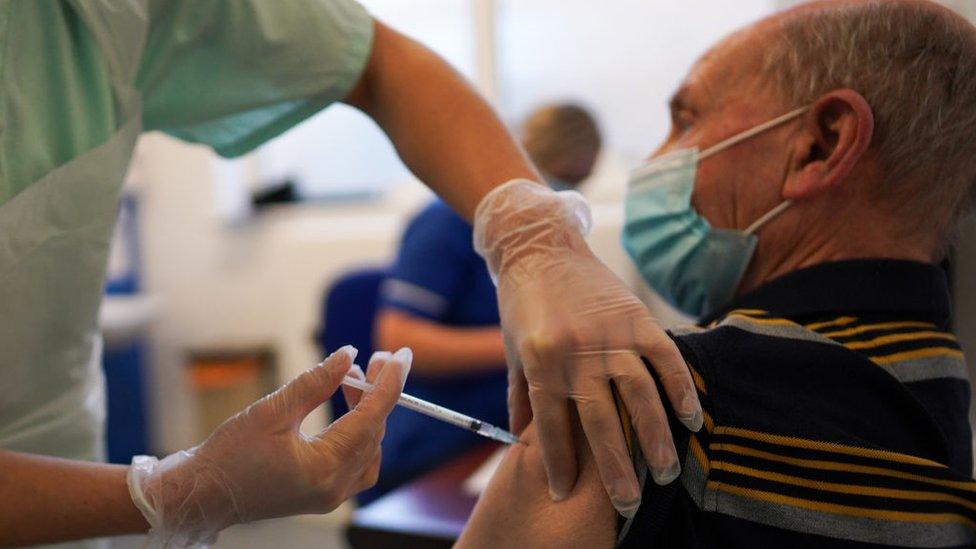Covid vaccine: 'Confusing' information on regional supplies
- Published
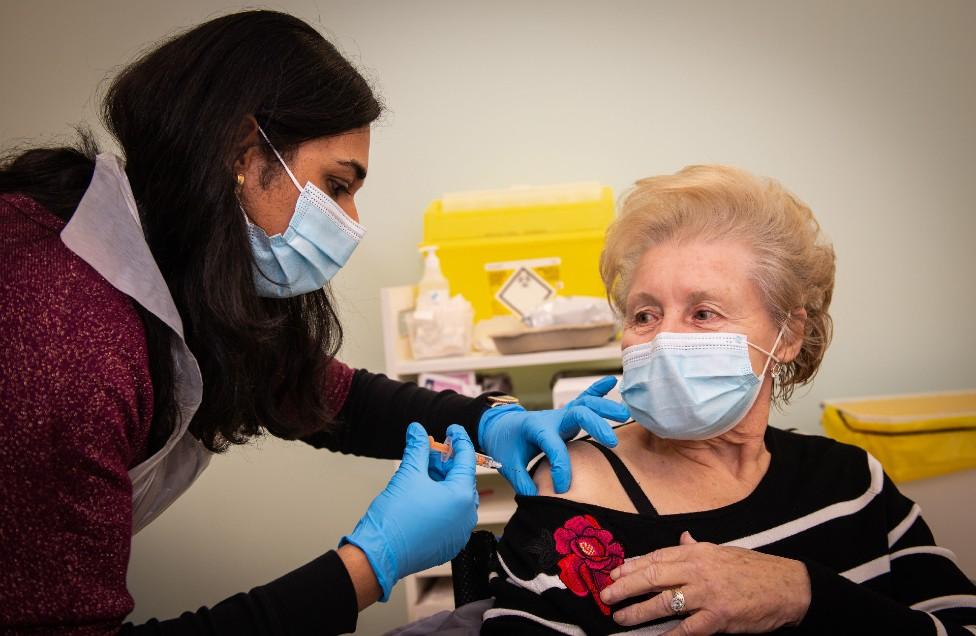
Vaccination rates among over-80s in Yorkshire and the North East are higher than in any other part of England
The government has been accused of "confusing" messages around Covid vaccine supplies for northern England.
The Health Service Journal, external (HSJ) reported GPs in Yorkshire and the North East were set to receive half as many doses next week.
After an NHS medical director said deliveries were targeted based on vaccination rates, an NHS statement denied vaccines were "being diverted".
A Labour MP said the government "needs to be straight" on the issue.
On Thursday, Vaccines Minister Nadhim Zahawi denied supplies were being moved to other parts of the country.
But on Friday, Nikki Kanani, NHS England and NHS Improvement director, told BBC Radio 4's Today that vaccine delivery was being changed to address variations in regional vaccination rates.
Ms Kanani said: "We need to target our deliveries to make sure that they are going to areas where there are more people left to vaccinate in the priority cohorts."
On Friday evening, an NHS spokesperson said: "It is not true that vaccine is being diverted from north to south.
"As supplies allow, the NHS aims to offer vaccination to all those in the four priority groups, including people aged 70 and over in every part of England by the middle of February."
Under the government's vaccination drive, those over 80 years old are given highest priority.
According to the latest NHS figures, Yorkshire and the North East lead England with 67% of over-80s having received their first vaccine dose, compared with 36% in Suffolk and north-east Essex.
The suggestion supplies were being redirected prompted anger from some regional leaders, who said it was an "outrage".
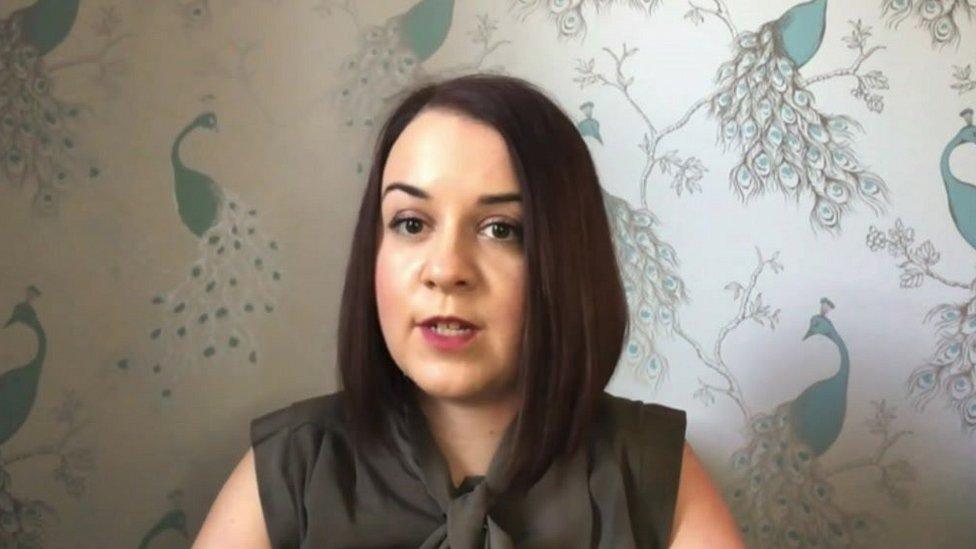
Labour MP Stephanie Peacock said it is "really disappointing we've ended up in this confusing situation"
Stephanie Peacock, Labour MP for Barnsley East, said: "The government need to be straight, if they've made a decision to redirect vaccines to support those that most need it, I'm sure everyone would understand that and would support that."
"What they shouldn't be doing is making it very confusing, saying one thing's true then another thing's happening."

Who's in the top four priority groups?
Residents in care homes for older adults and their carers
80-year-olds and over and front-line health and social care workers
75-year-olds and over
70-year-olds and over and clinically extremely vulnerable individuals

George Rae, chair of the British Medical Association's North East regional council, said: "One has to realise the people in the North East have had significant problems as far as the infection rate is concerned - and way back in May and June very sadly we had the highest death rate in England - so we've got to ensure we vaccinate as many people as possible.
"We're doing that in the North East and I think it's very, very sad if we're finding that because of the success we're actually having as such that the amount of vaccines which would be delivered to us are actually being cut back."
Dr Ollie Hart, a Sheffield-based GP, said: "We've shown that we can deliver 700 vaccines a day from our site.
"We're having to go slower now, we're only being allowed 400 vaccines next week which barely covers half a day so it's really frustrating at a time where all we want to do is to get people vaccinated."
When asked about the numbers of vaccines due to be distributed to the North East and Yorkshire, the Department for Health and Social Care said: "In the coming week millions of doses of the vaccines will be delivered and we remain on track to offer first vaccinations to the top four priority groups by mid-February.
"As we've said, supply is the limiting factor and as the public would expect we're prioritising those most at risk from this disease across the country."
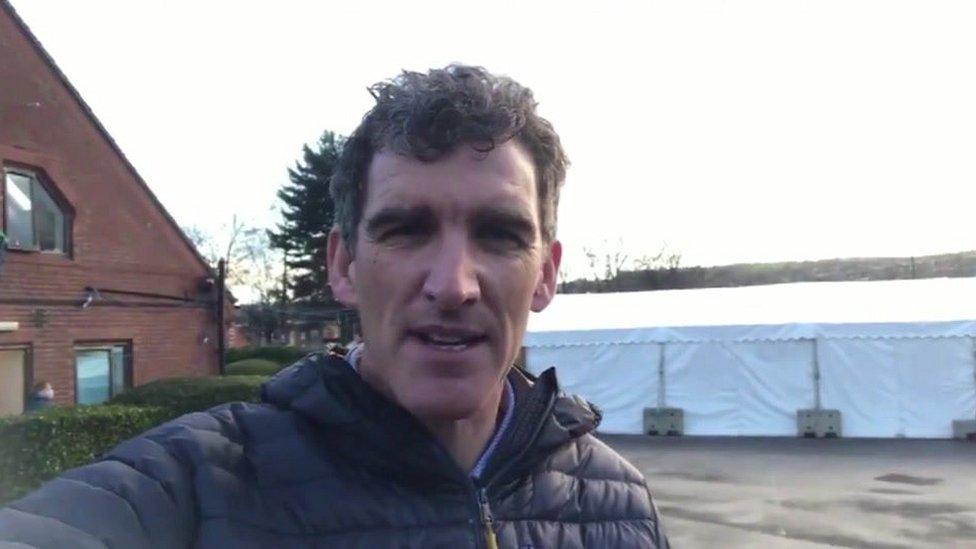
Dr Ollie Hart, who has helped to administer 700 Covid vaccines a day, says the number is about to drop due to supply

Analysis
Sharon Barbour - BBC Look North health correspondent
What has angered many across the region is the perception they are now being penalised for their success; that their hard work has put them too far ahead of other areas.
I have never seen a story generate quite as much outrage.
Many are saying other regions should learn lessons from the North East, while some argue this region still has over-80s to reach and they need the vaccine too.
Of course some understand the need for vaccine supplies to be diverted to those in more desperate need, especially to those in care homes.
But perhaps the most pressing calls are for transparency - why isn't there enough vaccine to go to all the most vulnerable in the country?

Related topics
- Published21 January 2021
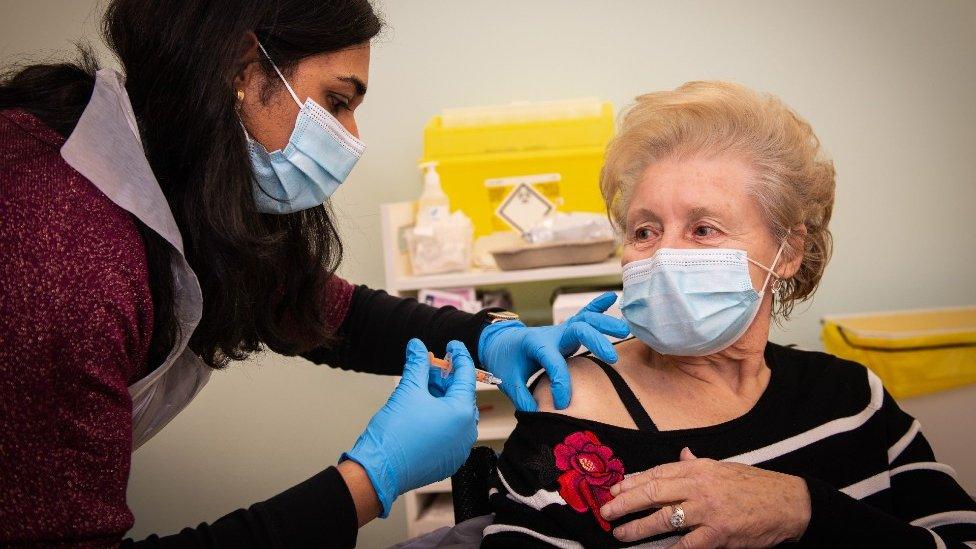
- Published21 January 2021

- Published18 January 2021
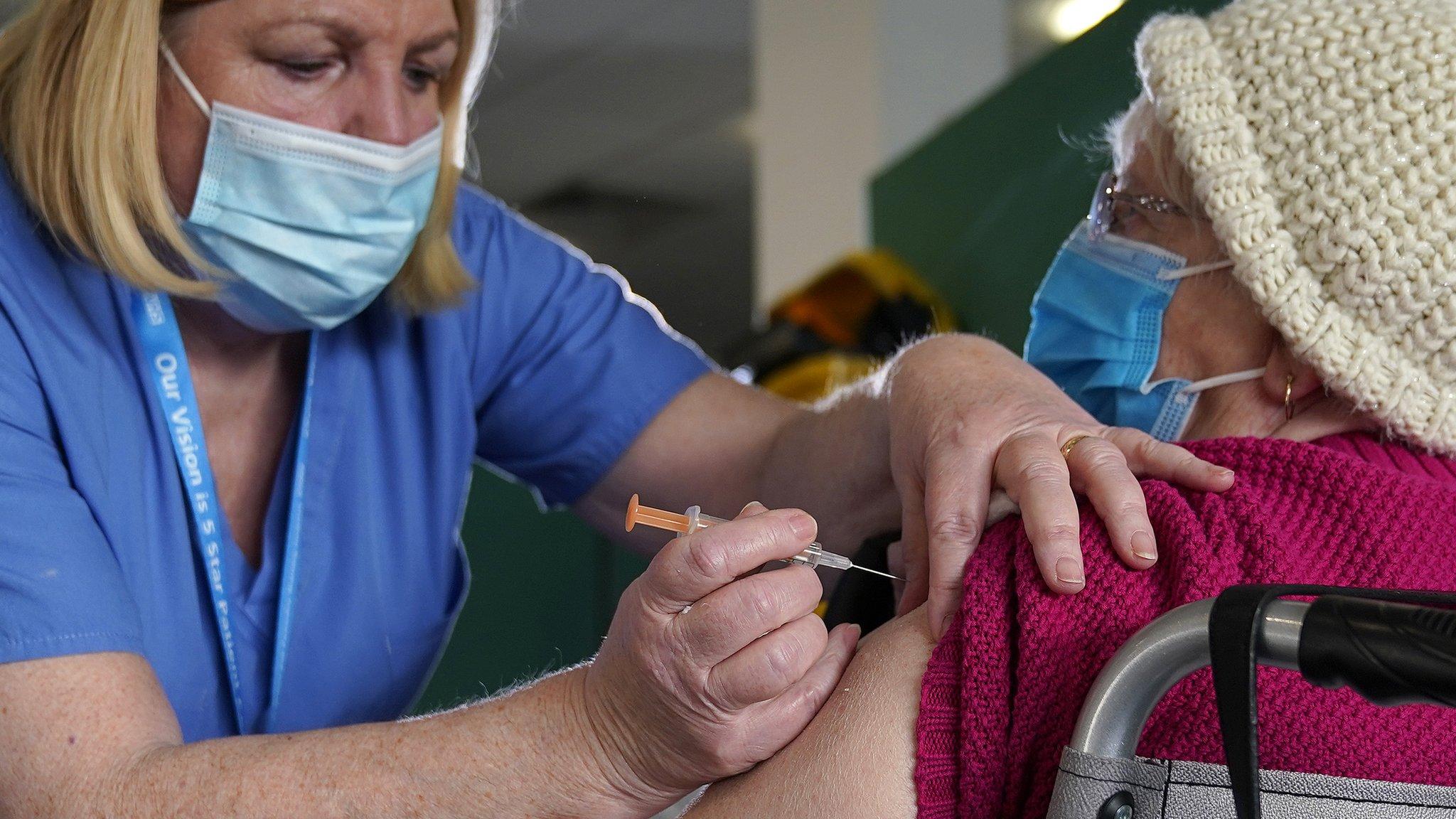
- Published14 January 2021
